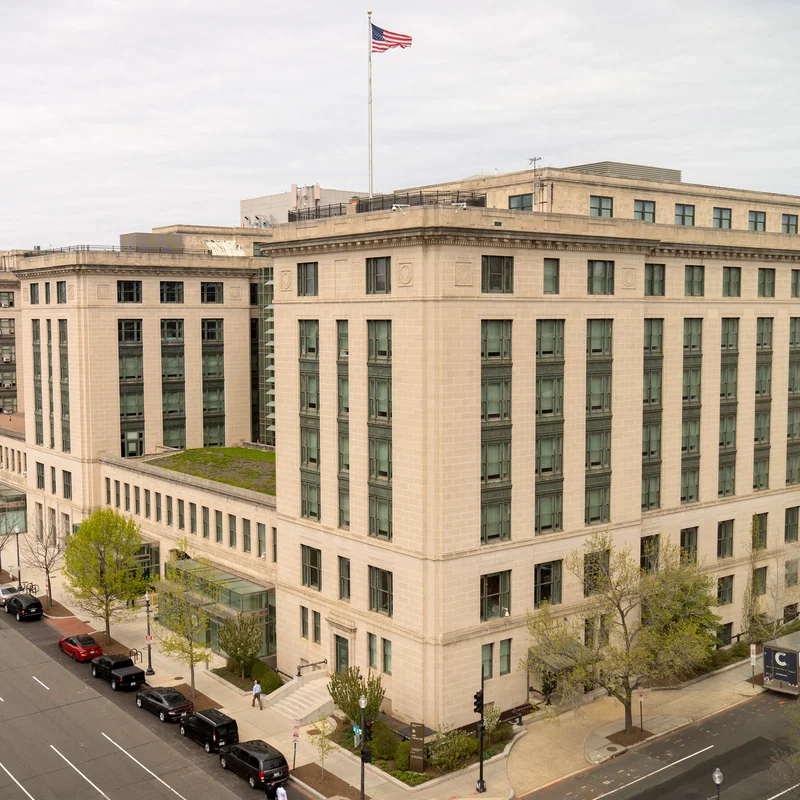A scathing new Senate report reveals that the Trump administration’s Department of Government Efficiency (DOGE) operated in chaotic, unsanctioned conditions that jeopardized the security of Americans’ sensitive data. The investigation, led by Democratic members of the Homeland Security and Government Affairs Committee, paints a picture of a rogue agency where young aides lived and worked amid armed guards, unsecured laptops, and Starlink internet connections—all while handling classified federal information .
What Is DOGE?
Launched in early 2025, DOGE was President Trump’s flagship initiative to “slash bureaucracy and cut waste” across federal agencies. Tasked with consolidating IT systems, eliminating “redundant” programs, and firing thousands of civil servants, DOGE was granted sweeping authority—bypassing traditional oversight and procurement rules.
But according to the Senate Democrats’ report, that power came with virtually no accountability.
🚨 Key Findings from the Senate Report
- DOGE staff lived in makeshift bedrooms on the 6th floor of the GSA headquarters.
- Windows were covered with garbage bags to block outside views.
- Children’s toys and personal belongings cluttered workspaces alongside government laptops.
- Sensitive data was transferred to external servers “without any verified security controls.”
- Staff used private Starlink satellite internet, evading federal cybersecurity monitoring.
How Data Security Was Compromised
The report details a disturbing lack of protocol:
- No background checks: Many DOGE aides were recent college graduates with no federal experience or security clearances.
- Unsecured devices: Up to 10 laptops per workstation, some logged into multiple agency systems simultaneously.
- Shadow IT infrastructure: Data migrated to third-party cloud servers without encryption or audit trails.
- Blurred work-life boundaries: Employees worked and slept in the same space, increasing risk of device theft or unauthorized access.
DOGE vs. Standard Federal Security Protocols
| Security Measure | Federal Standard | DOGE Practice |
|---|---|---|
| Network Access | Federal network with continuous monitoring (CISA compliance) | Starlink and personal hotspots |
| Data Transfer | Encrypted channels; approved cloud platforms only | Unvetted external servers; no encryption |
| Physical Security | Badged entry, 24/7 surveillance, clean desk policy | Garbage-bag-covered windows, toys, beds in office |
| Personnel Vetting | Minimum public trust clearance for data access | No formal vetting; some staff under 21 |
Who Was in Charge?
DOGE was led by a small cadre of Trump loyalists, many recruited from right-wing think tanks and tech startups. The agency reported directly to Russell T. Vought, director of the Office of Management and Budget, who has long advocated for “deconstructing the administrative state.”
Senator Gary Peters (D-MI), ranking member of the committee, called DOGE “a national security time bomb disguised as a cost-cutting measure.”
Broader Implications
Cybersecurity experts warn that DOGE’s practices could have exposed Social Security numbers, tax records, immigration files, and even law enforcement databases to foreign adversaries or insider threats.
“This wasn’t just sloppy—it was reckless,” said Jen Easterly, former CISA director. “You don’t experiment with federal data like it’s a Silicon Valley hackathon.”
What’s Next?
The Senate report recommends:
- Immediate suspension of DOGE’s data-handling authority
- FBI and CISA audit of all systems DOGE accessed
- Congressional hearings on emergency executive powers
The White House has dismissed the report as “political theater” and defended DOGE as “delivering results the American people demanded.”
For more on federal cybersecurity failures, see our investigation on how U.S. agencies keep failing to protect your data.




